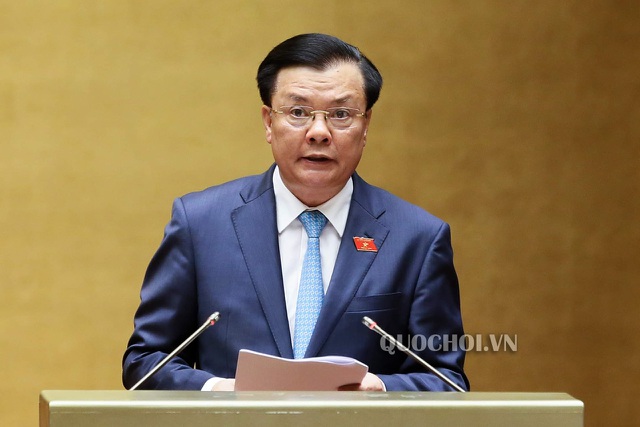According to Finance Minister Dinh Tien Dung, the policy to support those affected by Covid-19 is about to be issued, including a 50% reduction in registration fees for cars, small and medium-sized enterprises, and specially injured enterprises. Today (June 16), the National Assembly discussed in the hall the Resolution on reducing corporate income tax (DN) payable in 2020 for enterprises, cooperatives, non-business units and other organizations. Delegate Vu Tien Loc (Thai Binh) stated: “Small and medium-sized enterprises are the area that creates the most jobs in this country, so support is to support workers. This is also a solution to support well-being, not just the economy. The very sensitive SME sector is prone to closure, but recovers and expands quickly.” According to Mr. Loc, because of the limited budget, it is not possible to support all businesses, at least support all small businesses. Please support the right small businesses as prescribed in the Law.

Delegate Phung Van Hung (Cao Bang delegation) said that support should not only be for small businesses but expanded to support both small and medium enterprises. “Small and medium enterprises both play an important role in the economy. This is a group that lacks resources, science, and technology, is weak in a management capacity, and has very poor credit access compared to large enterprises…” – Mr. Hung explained. The Cao Bang delegation suggested that the Government soon consider amending the Law on Corporate Income Tax and a number of other related laws to soon bring the Law on Small and Medium Enterprises to life. Meanwhile, delegate Pham Van Hoa (Dong Thap) stated that the regulations on supporting small businesses with a turnover of less than 50 billion VND and paying social insurance contributions under 100 employees are quite vague. “The business should have a real revenue of 55 billion dong, even 60 billion dong, but they will try to dodge to declare just under 50 billion dong, even 49.9 billion dong to enjoy the policy. I think it is advisable to clearly define all small businesses to be applied at a reduced rate,” emphasized the Dong Thap delegate. Explaining to the National Assembly, Minister of Finance Dinh Tien Dung emphasized: The resolution is one of the fiscal solutions the Government has proposed to support businesses in the current situation. Regarding the subjects, the drafting agency basically accepts and will report to the Government and the Prime Minister to report to the National Assembly soon. Regarding criteria, Minister Dinh Tien Dung said that criterion must be selected so that when organizing and managing smoothly, avoiding risks.

Minister Dinh Tien Dung informed: Recently, the Government has synchronously implemented fiscal solutions to support businesses. The Government issued Decree No. 41/2020/ND-CP dated April 8, 2020 on extending the deadline for paying taxes and land rents for those facing difficulties due to the impact of the Covid-19 epidemic. Regarding the reduction of fees and charges, the Ministry of Finance has so far issued 18 circulars, reducing fees and charges. Many types of fees and charges have been greatly reduced, including in the aviation sector. In particular, the reduction of service prices in the securities sector has had a great impact in recent times, contributing to stabilizing the market. In addition, policies such as family deduction for personal income tax have been decided by the National Assembly Standing Committee. Regarding cost reduction for enterprises, the Ministry of Finance has submitted to the Government to amend a number of decrees to adjust import tax rates, to assist in removing difficulties for enterprises’ production, import and export, including supporting the public sector. supporting industries, footwear, textiles. In addition, in the coming time, under the direction of the Government, the Ministry of Finance is developing and will submit to the Government a decision to reduce 50% of the registration fee for domestically produced automobiles; submit to the Government to submit to the National Assembly Standing Committee a resolution on environmental protection tax on jet fuel. These tax policies are intended to support particularly vulnerable businesses such as airlines. This is one of the solutions, but to remove difficulties for businesses, it is necessary to implement synchronous financial solutions. “According to regulations, businesses have self-calculated, self-declared and self-submitted. The spirit of this Decree is the same. However, in the process of management, we have to strengthen risk management, in case of necessity, we still have to inspect and check “- emphasized the Finance Minister.




